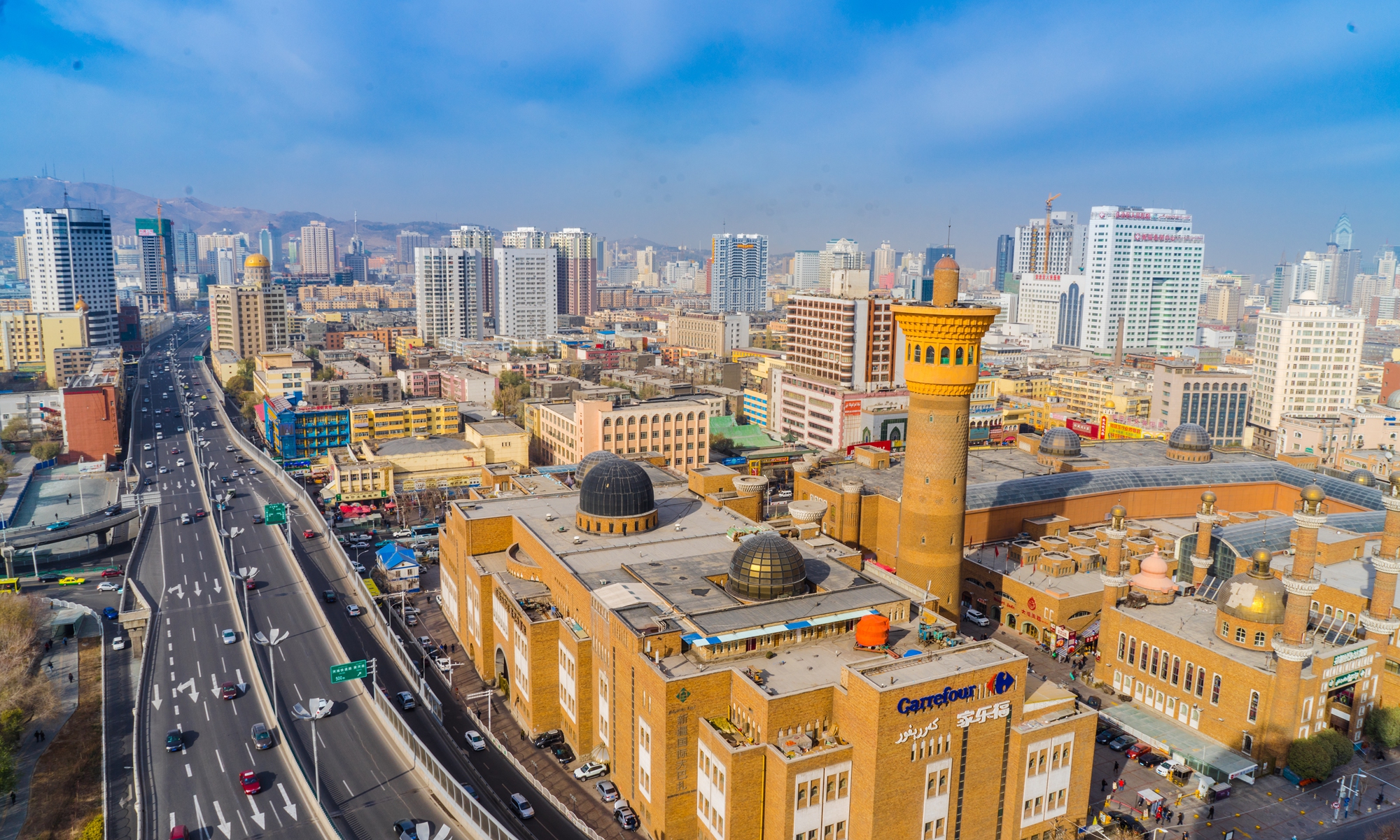
Xinjiang Photo: IC
China on Friday strongly condemned and opposed the passage of a motion by the Dutch House of Representatives which declared "genocide" is taking place in China's Xinjiang Uygur Autonomous Region, saying it neglected facts and the common sense of law, and was a deliberate smear of China and gross interference in China's internal affairs.
China hopes the Netherlands can hold an objective and fair stance and respect China's core interests and major concerns, China's Foreign Ministry Spokesperson Wang Wenbin said at a routine press conference.
He also urged the Netherlands to stop its wrongdoings and maintain bilateral relations with real actions.
The Chinese Embassy in the Netherlands on Friday also condemned the motion.
The Dutch parliament passed the non-binding motion regarding Xinjiang on Thursday, the first such move by a European country. The VVD party of Dutch Prime Minister Mark Rutte voted against the resolution, according to Reuters.
Zhao Xin, a lecturer at the School of International Law at the China University of Political Science and Law, told the Global Times on Friday that the passage of the motion violates international law.
"The motion cannot be applied to the international community, nor can it be used as a basis to refuse to abide by the basic principles of respect for sovereignty and non-interference in the internal affairs of other countries in international law," said Zhao.
From 2010 to 2018, the Uygur population in Xinjiang increased by 25 percent, much higher than that of the Han population, which increased only 2 percent. Over the past 40 years, the Uygur population in Xinjiang has doubled. Over the past 60 years, average life expectancy in Xinjiang increased from 30 to 72, and GDP in Xinjiang expanded by over 200 times, with per capita GDP growing by nearly 40 times. All of these prove that "genocide in Xinjiang" is an outright lie, said the Embassy.
The Embassy pointed out that Xinjiang affairs are not about human rights, ethnicity or religion, but about "combating violent terrorism and secession."
Xinjiang has been earnestly implementing the UN Plan of Action to Prevent Violent Extremism, drawing on similar practices of other countries and taking de-radicalization measures in accordance with law, said the Embassy, which is fully consistent with the principles and spirit of the UN Global Counter-Terrorism Strategy.
The fundamental goal of the Dutch motion is to try to support the separatist forces, said Zhao.
The Embassy accused some of the Dutch parliament members of taking Xinjiang affairs as "leverage for political gains" and showing no respect for facts and rule of law.
"This fully demonstrates their ignorance and bias toward China, as well as their selfishness and narrowness of mind," said the Embassy.
The Embassy urged these parliament members with ulterior motives to stop their wrongdoings, stop interfering in China's internal affairs, stop using Xinjiang to seek their own interests and stop jeopardizing China-Netherlands relations.
An anonymous expert on European studies told the Global Times on Friday that the Netherlands is one of the oldest members in the EU, so the human rights card played by the Netherlands is worth attention from China, though the momentum of China-EU relations has been positive recently.
He Zhigao, a research fellow with the Institute of European Studies, Chinese Academy of Social Sciences, told the Global Times on Friday that the "human rights card" is easy for some small and medium European countries to play, but it will not impact China-Europe cooperation much at the broader level.
"It requires leadership on both sides to steer relations to the right track," said He.




